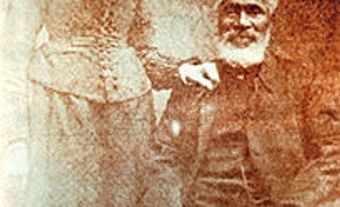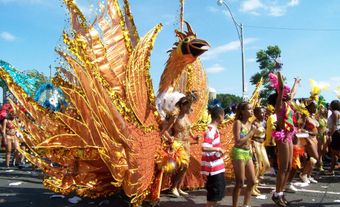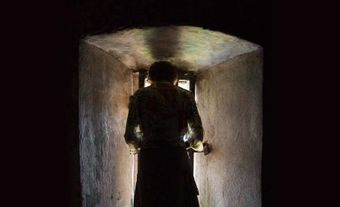Anne Clare Cools, administrator, community worker, senator (born on 12 August 1943 in Barbados, British West Indies). An influential Black Canadian activist, Anne Cools served four months in jail for her role in the Sir George Williams Affair, for which she was pardoned in 1981. She founded Women in Transition, one of Canada’s first shelters for female victims of violence. She also served on the National Parole Board of Canada. In 1984, she became the first Black Canadian to be named to the Senate. She served as a Liberal, Conservative and independent senator for more than 30 years, and was known as the Dean of the Senate for her knowledge of parliamentary history and procedure.
Childhood
Anne Cools was one of six children born to Rosita Gordon Miller and Lucius Unique Cools, a pharmacist. Two of her siblings did not survive childhood. Cools attended Ursuline Convent School in Bridgetown, Barbados. Solitary and studious as a child, she said she was nicknamed “Dogbones” for her gawky appearance. Her childhood heroes were British anti-slavery abolitionists such as William Wilberforce.
Cools moved to Canada with her family in 1957 at age 13. She attended the private girls’ school Queen’s College in Barbados and the public Thomas D’Arcy McGee High School in Montreal. ( See also Thomas D’Arcy McGee.) She graduated from McGill University in 1981 with a degree in psychology and sociology.
Family
Cools’s family was active in the Barbados Labour Party. A maternal uncle, Frederick Edward Miller, held cabinet positions in the colonial government before the Caribbean island gained independence from Britain in 1966. His daughter Billie Miller, a first cousin of Cools, was the island’s first female barrister and the first woman to sit in the Barbados cabinet.
Student Activism
In 1969, Cools took part in a sit-in occupation at Sir George Williams University (now Concordia University) in Montreal. The sit-in was part of a series of protests against the alleged racist treatment of six Black students. (See Sir George Williams Affair.) The protest had been peaceful until police tried to evict some 100 students and protestors occupying the seventh and ninth floor of the university’s main Henry F. Hall Building on 11 February 1969. A fire in the computer room caused a reported $2 million in damages and led to the arrest of 97 people, including Cools. She was convicted on a charge of wilful obstruction; she was sentenced to six-months imprisonment and a fine of $1,500. Students in Georgetown, Barbados, burned an effigy of Prime Minister Pierre Trudeau, as well as a replica of the Canadian flag, to protest the convictions against Cools and other students. Cools served four months in prison. She was pardoned in 1981.
In 1974, she founded and served as executive director and special projects manager of Women in Transition Inc. The Toronto social work agency provided one of Canada’s first shelters for women and children who were victims of domestic violence. She was involved with the agency for 16 years.
Political Career
In 1978, Cools contested the Liberal nomination in a by-election in the central Toronto riding of Rosedale. She lost to establishment candidate John Evans, the former president of the University of Toronto. The nomination battle was recounted in Bonnie Sherr Klein’s National Film Board documentary, The Right Candidate for Rosedale (1979). Evans then lost the by-election to Progressive Conservative candidate David Crombie, who had resigned as mayor of Toronto to run for a seat in the House of Commons.
A year later, Cools was the Liberal candidate in the 1979 general election. She lost to Crombie by more than 5,000 votes. The voters of Rosedale went to the polls for the third time in 14 months on 18 February 1980, in another general election. Cools finished just 1,869 votes behind Crombie out of 38,360 ballots cast. (See also Elections of 1979 and 1980.) Cools was named by the federal Liberal government later that year to the National Parole Board, where she served for four years. (See also Probation and Parole.)
Senate Appointment
Prime Minister Pierre Trudeau named Cools to the Senate in 1984. She represented Toronto Centre (later Toronto Centre-York) as one of Ontario’s 24 senators. She sat with the Liberal caucus for 20 years before crossing to the Conservatives in 2004 because of the sponsorship scandal; as well as her opposition to a gun registry and to the Liberals’ position on same-sex marriage.
She was expelled from the Conservative caucus three years later for criticizing Prime Minister Stephen Harper. She then sat as an unaffiliated and independent senator before finishing her career with the Independent Senators Group.
Cools has said she was proudest of her work on Parliament Hill as an advocate for the rights of children and fathers in divorce and separation cases. In 1998, she served on a special joint committee on child custody. It recommended fairer treatment for fathers as well as a focus on a child’s well-being in a report titled, “For the Sake of the Children.” (See also Family Court; Family Law in Canada.)
Cools retired from the Senate on 11 August 2018, the day before her 75th birthday (the mandatory age for Senatorial retirement). She was known as the Dean of the Senate for having served for 34 years, six months and 30 days, and for her knowledge of parliamentary history and procedure.

Personal Life
Cools married Rolf Calhoun in 1986. She plays the piano and is an aficionado of classical music.

 Share on Facebook
Share on Facebook Share on X
Share on X Share by Email
Share by Email Share on Google Classroom
Share on Google Classroom



